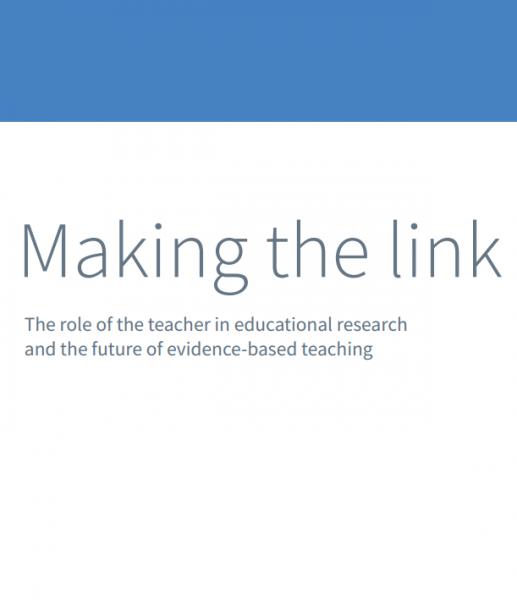Teachers are constantly challenged to improve and reflect on their practice. Katie Renton, junior content executive at Optimus Education, looks at how teachers can improve pupils’ experiences in the classroom through action research.
Professional development in schools must create an overt relevance for its participants, fitting into and inspiring the day-to-day experience with their pupils. This was one of the key findings of the Developing Great Teaching report from the Teacher Development Trust earlier this week.
It’s true that CPD opportunities in schools are often driven by school targets, depriving teachers of the chance to really explore and develop areas of their individual interests. One approach which helps this, however, is action research.
Defined in the dictionary as ’studies carried out in the course of an activity or occupation, typically in the field of education, to improve the methods and approach of those involved,’ action research encourages teacher action and reflection. It offers three highly beneficial features:
Here at Optimus, we have recently introduced a new course looking at this very topic: Action Research for Improved Classroom Teaching. The course demonstrates how to embark on research cycles in the classroom through activities and discussion in five units. The three steps below summarise the action research process as outlined in the course.
Identify an area of practice in the classroom that is in need of some attention, something the participant sees as a ‘niggle’. Gather information about the issue while in the classroom, asking ’what’s going on?’ Consider what aspects of practice could potentially be improved to help with the identified issue.
Example: Ask ‘Why doesn’t the group work part of my lessons turn out that well?’ and consider aspects such as class seating plans or use of ICT. Access and establish what research has previously been carried out in this area through online services such as Google Scholar. This will identify what gaps in the research you can explore.
Construct a different research question, this time asking ’what happens if?’ This acts as an intervention aiming to develop and improve the initial issue from the first research cycle.
Establish the best methodology for gathering evidence of the impact of this intervention, and gather information accordingly about how the intervention impacts on the classroom. These methods can be qualitative or quantitative.
Example: Ask ‘Can ICT be used as an effective tool for engaging pupils in literacy?’ and use methods such as pupil surveys of the new ICT use or lesson observation of pupil behaviour and attention.
With the results gathered from the second research cycle, consider what this means – has there been a positive impact? Is there a different intervention that could be more effective? Consider how to share findings with the rest of the school.
Also, consider how improved practice can be embedded within the school, or how to embark on a different research cycle with a new intervention.
This course was written by Anna Reid, a teacher of research methodology at Newcastle University, and David Leat, Director of the Research Centre for Learning and Teaching.
 Further reading
Further readingDownload our white paper, Making the link, on the role of the teacher in educational research and how we've got it wrong so far and the pressing need for teachers' involvement to make it work better.
Take a look at Evidence based teaching: five strategies and how to use them to see some examples of how research can support effective teaching.
You will need to log in to access this content, but if your school or setting does not have a membership then simply take out a free trial.